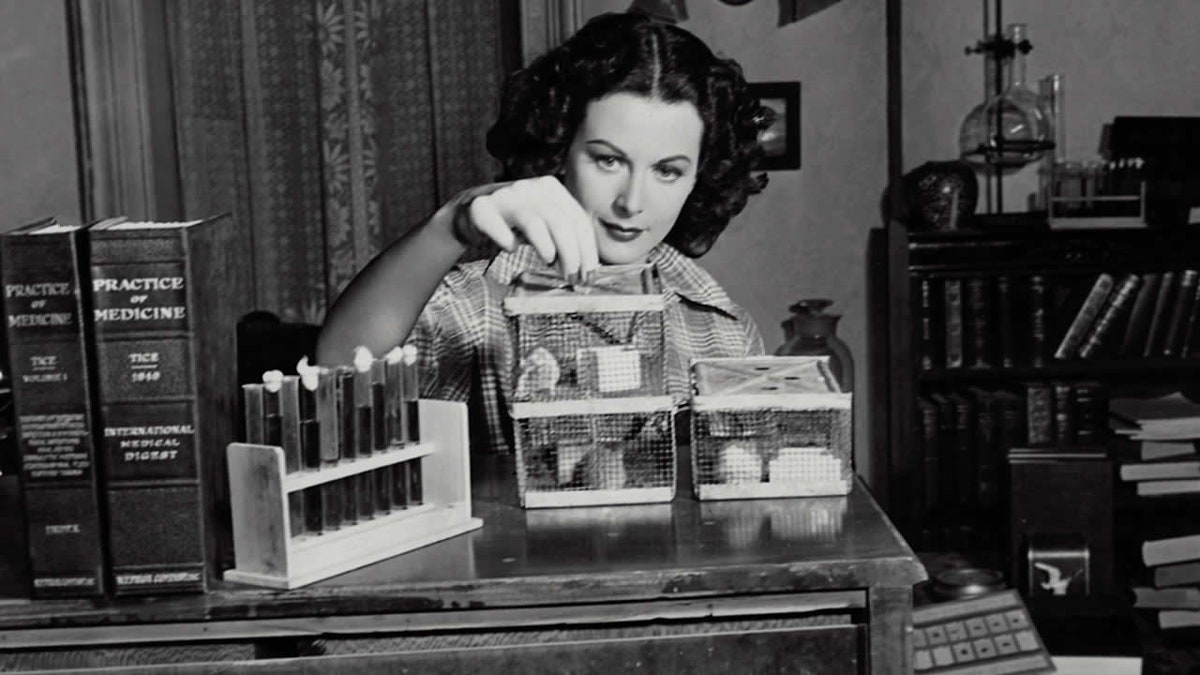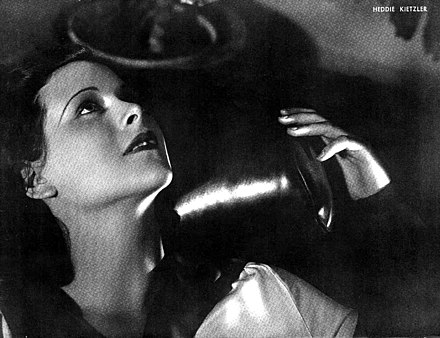After two seemingly endless years of war full of tragedy and despair for many due to the calamity of World War II, the United States began to provide significant military supplies and other assistance to the allied countries in September of 1940. That was the year Lamarr crossed paths with George Antheil, a California neighbor, pianist, and composer who had experimented with automated control of musical instruments. Both wanting to assist in the Allied war effort, they came to the realization that the Navy's important radio-controlled torpedoes could easily be jammed by broadcasting an interference at the frequency of the control signal, causing the torpedo to miss its target.

Alexandra Dean portraying Lamarr in the documentary Bombshell, studyindi.com, 2017
"I'll read you something pretty. "People are unreasonable, illogical and self-centered - love them anyway. If you do good, people will accuse you of selfish, alternative motives - do good anyway. The biggest people with the biggest ideas can be shot down by the smallest people with the smallest minds - think big anyway. What you spend years building may be destroyed overnight - build anyway. Give the world the best you have and you'll be kicked into the teeth - give the world the best you've got anyway." -Hedy Lamarr

